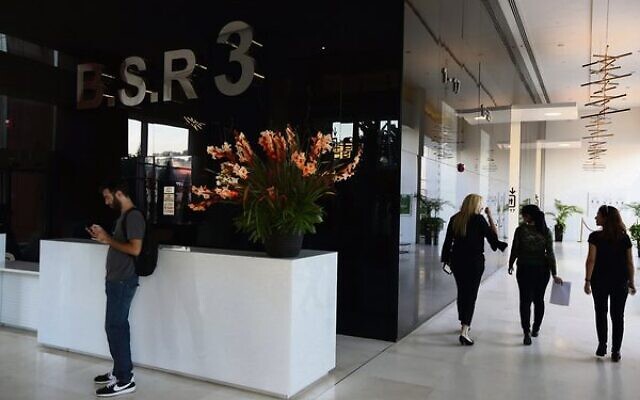Women only about a third of Israel’s tech employees
"Changes occur over time and we are implementing a step-by-step plan with the goal of achieving total gender equality in employment."

Women continue to be underrepresented in the Israeli tech ecosystem, accounting for about 34 per cent of the industry’s workforce, according to a report released late last month.
The start-up Israeli ecosystem diversity report conducted for the second consecutive year by Power in Diversity showed that despite a slight annual increase of 0.4 per cent in the representation of women in 2022, males still dominates the ecosystem.
Women hold 24 per cent of jobs in management roles, representing an increase of six per cent from 2021, according to the report, which is based on an analysis of data collected from 650 active Israeli venture-backed companies that employ at least 50 workers in the country.
The percentage of women holding technological positions stands at 27.8 per cent.
“Despite high demand for talent and extensive recruitment efforts in the first half of 2022, we have not seen any significant changes,” the report found.
About 72 VC funds and over 200 start-ups make up the Power in Diversity initiative, which was set up to bring sidelined communities such as Arabs, ultra-Orthodox, Ethiopians and others into the tech ecosystem. The initiative has been working for years to help tech firms and VC funds recruit employees from diverse communities and overcome inbuilt biases of which employers may not even be aware.
“In this highly challenging political climate, where the country’s social and financial achievements are at risk, the high tech sector, which is the propeller of the economy, must strive full force to embrace women in the industry,” said Sivan Shamri Dahan, managing partner at Qumra capital and a member of the Power in Diversity’s steering committee.
“Changes occur over time and we are implementing a step-by-step plan with the goal of achieving total gender equality in employment.”
She further urged, “We should make Charedi and Arab women, who still make up a small portion of our industry, our next focus.”
Long touted as the growth engine of Israel’s economy, the tech sector accounts for around 25 per cent of total income tax revenue and constitutes about 10 per cent of the workforce. At the same time, the country suffers from a severe shortage of skilled tech workers. There are about 32,900 open positions, of which 21,000 are for tech positions, according to the latest Human Capital in Tech 2021-2022 report by the Start-Up Nation Policy Institute and the Israel Innovation Authority.
“2023 will not be an easy year for start-ups,” said Kobi Samboursky, co-chairman of Power in Diversity and founding partner at Glilot Capital Partners. “After years of market growth, we are witnessing cross-industry layoffs and conditions of uncertainty.
“It is particularly in times like these that we ought to address misrepresented populations, as they are likely to suffer more harm.”
The Arab population’s participation rates in the tech employment market remains low, the report showed. Arab Israelis, who represent 20 per cent of Israel’s population, account for only 0.2 per cent of jobs held in the start-up industry.
TIMES OF ISRAEL

comments